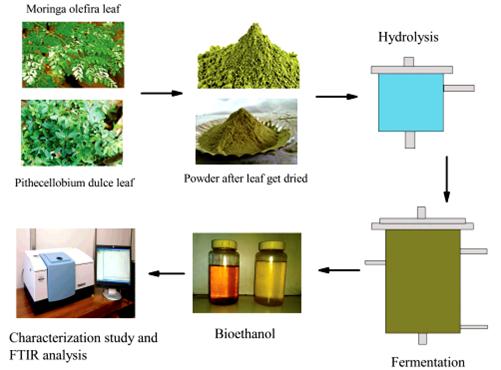
This study's two primary goals are to synthesize bioethanol from biowaste and examine its thermal characteristics. Bioethanol must first undergo a comprehensive assessment of its thermal characteristics in order to be approved for usage in spark-ignition engines. A multi-step procedure comprising extraction, pretreatment, enzymatic hydrolysis, and fermentation was used to manufacture the bioethanol. The raw material was put through a preliminary screening using thermogravimetric analysis to find the mass loss rate as a function of temperature before to starting this process. Remarkably, the Manila tamarind leaves exhibited the highest mass loss, up to 34%. Enzymatic cellulose conversion to fermentable sugars was a critical step in the production of cellulosic ethanol. Following hydrolysis, Saccharomyces cerevisiae was employed in the fermentation process, leading to the bioethanol synthesis phase. The Manila Tamarind leaves yielded the most, around 29% by weight, which is amazing. In order to assess the thermal properties of the extracted ethanol, a variety of parameters were carefully examined, including the viscosity, density, cetane number, and calorific value. In each of these areas, mixtures of tire oil, gasoline, and bioethanol consistently outperformed the others. Furthermore, Fourier Transform Infrared Spectrometry spectra were utilized to validate the concentrations of potential groups, including alcohol, aromatic, alkyne, amide, and carbonyl groups. Clear objectives guide the fermentation process, aiming for consistent quality, safety, and functionality in the end product.
Total file downloads: 10